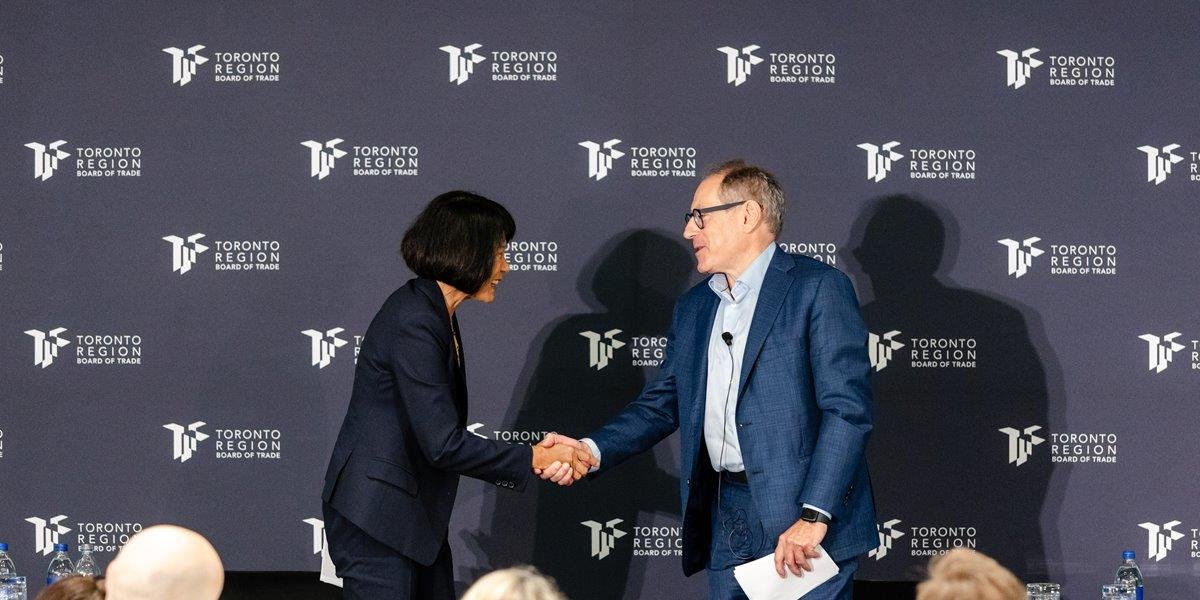
Toronto, along with the rest of Canada, is navigating a period of heightened economic danger and rapid change.
Tariffs are limiting access to the U.S. market, while aggressive America First industrial policies are diverting Canadian investment south. At the same time, longstanding productivity gaps are becoming more acute, demanding urgent solutions. Prime Minister Mark Carney’s government is fleshing out its “Build Baby Build” economic direction, while provinces are moving ahead with a newfound collaborative spirit. All steps in the right direction, but much more is needed.
It was against this backdrop that the Board convened its annual Policy Priority-Setting Session, bringing together policy committee members, Premier Doug Ford, and Alberta’s Senior Representative to Ottawa James Carpenter.
Speakers stressed the need to accelerate project delivery and secure domestic supply chains. The emphasis was on immediate actions: modernizing procurement, expanding skills programs, creating a competitive regulatory and tax environment, unlocking interprovincial trade, and moving major infrastructure projects from plan to construction.
Across the discussions, a consistent theme emerged: Canada must be more self-reliant. To do so, we must use the tools we already have: a skilled workforce, critical resources, and proven industrial capacity to strengthen competitiveness and resilience in the face of external shocks. At the same time, we also need to double down on buying what we make.
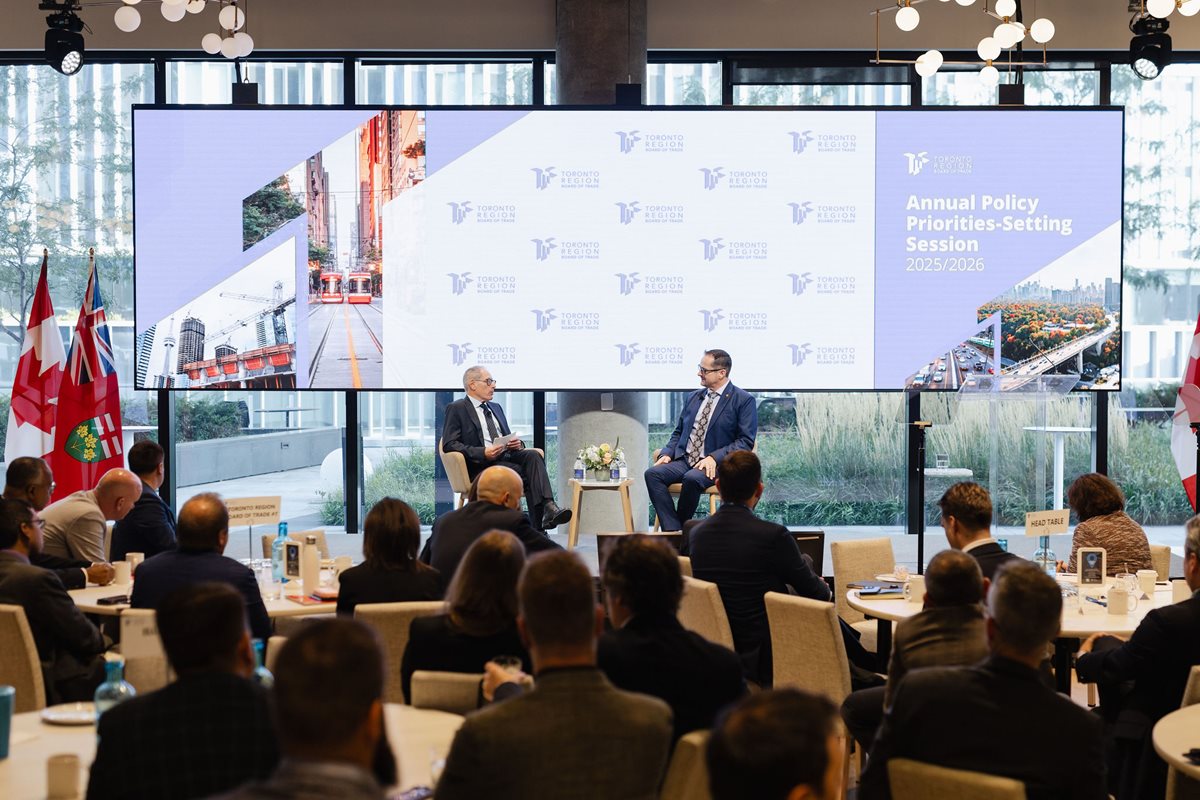
Competitiveness demands action on all fronts
Lower taxes, fewer regulatory barriers, onshoring manufacturing, Buy Ontario/Buy Canadian, and investment in major infrastructure are the ingredients to strengthen Canada’s economic base.
Domestic procurement must deliver results
Buy Canadian and Buy Ontario policies cannot remain aspirational. They need to translate into procurement rules that support domestic producers of steel, aluminum, manufactured goods, technology and services.
Internal trade barriers remain a drag
Recent agreements show progress, but duplicative rules and fragmented standards still limit the ability of businesses and workers to move freely across provinces. Removing these frictions would unlock immediate economic value.
Productivity must be the core priority
Congestion, delayed permits, and slow approvals undermine competitiveness. Addressing these bottlenecks is the fastest way to generate growth and fiscal capacity for health care, education, and infrastructure.
Labour and skills require better matching
Tens of thousands of vacancies coexist with high youth unemployment. Scaling training funds and accelerating recognition of skilled trades across jurisdictions are essential to close this gap.
$200b
Ontario's infrastructure build program — spanning transit, highways, hospitals, and schools — framed as both a jobs plan and a way to strengthen domestic supply chains through Buy Ontario procurement rules.
230,000
Unfilled jobs in Ontario today. Employers stressed that filling these roles will depend on faster skills training, better job-matching, and more recognition of qualifications across provinces.
$2.5b
Ontario’s Skills Development Fund, expanded to help close the gap between 230,000 job vacancies and available workers. The fund is targeted at retraining people in sectors hit by tariffs and equipping new entrants with skills for in-demand industries
50%
The steel import quota set by Ottawa, down from 60%. Speakers argued this leaves Canada exposed to dumping and undermines domestic producers, calling for a further cut to 25%
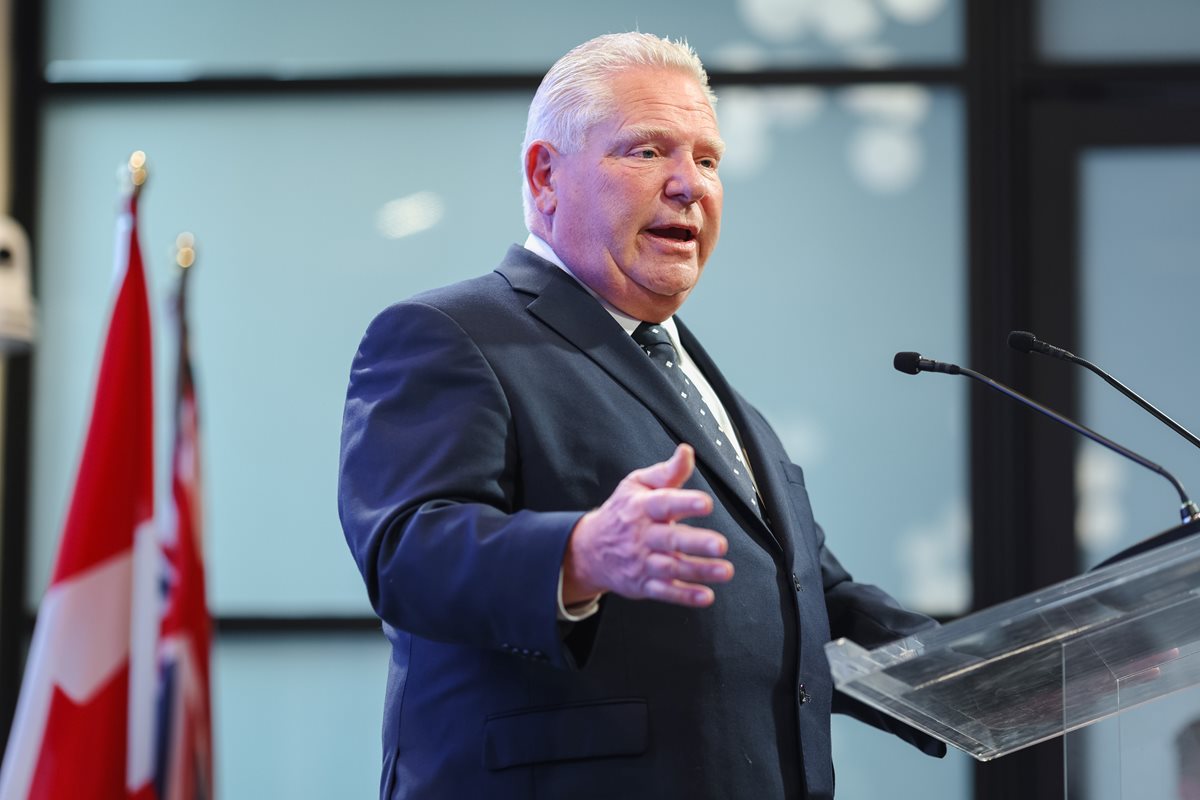
“Let’s make Ontario and Canada the greatest jurisdiction to do business by lowering the tax rate, corporate tax rate. We need to work together to make Ontario and Canada more competitive, resilient, and self-reliant. And let me be clear: I have no doubt that Ontario can stand up to President Trump and anything else that comes our way. Because we have everything we need right here in our province to build the strongest, most competitive economy in the G7, bar none.”
— Premier Doug Ford, Province of Ontario
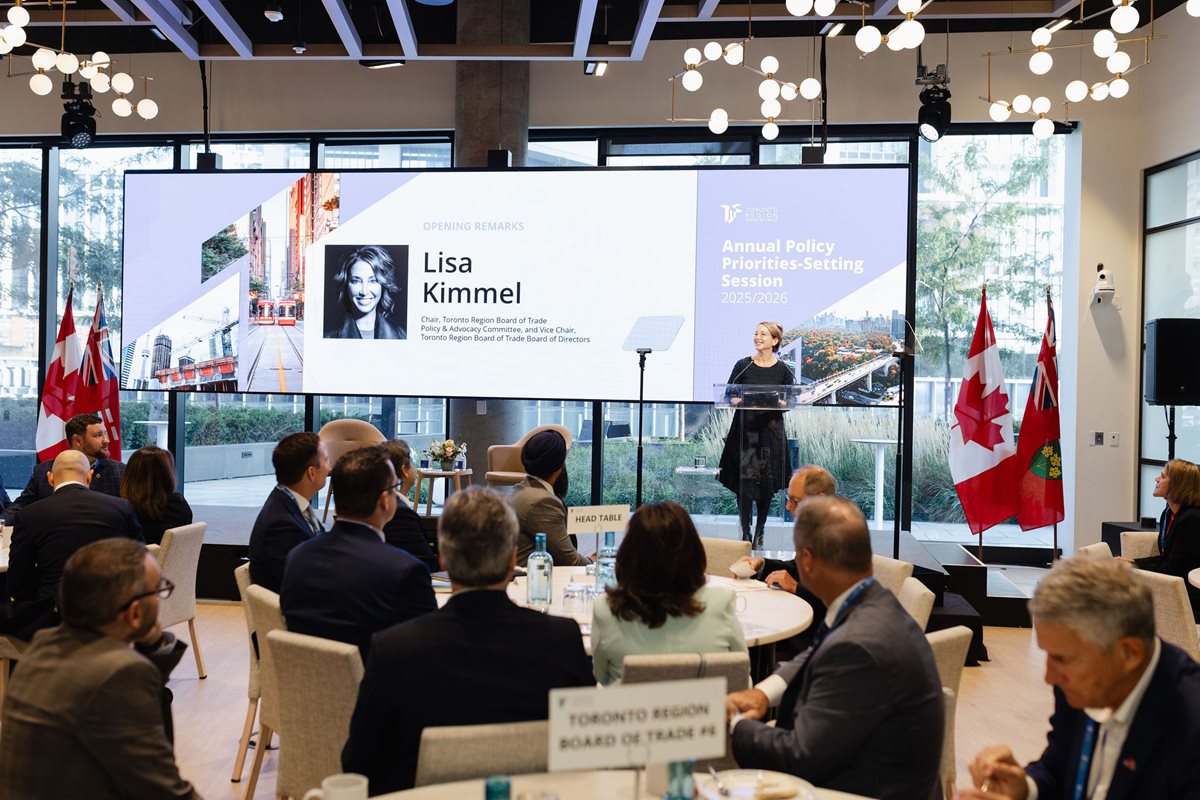
"What fills this room today isn’t just interest, it’s momentum, momentum from leaders who know that growth and competitiveness aren’t slogans, they’re survival skills. If the past 12 months have taught us anything, it’s this: there is no status quo. The work of our policy committees is critical as we find new ways to shore up our region’s productivity and resilience."
— Lisa Kimmel, Vice Chair of Toronto Region Board of Trade’s Board of Directors and Chair, Policy and Advocacy Committee
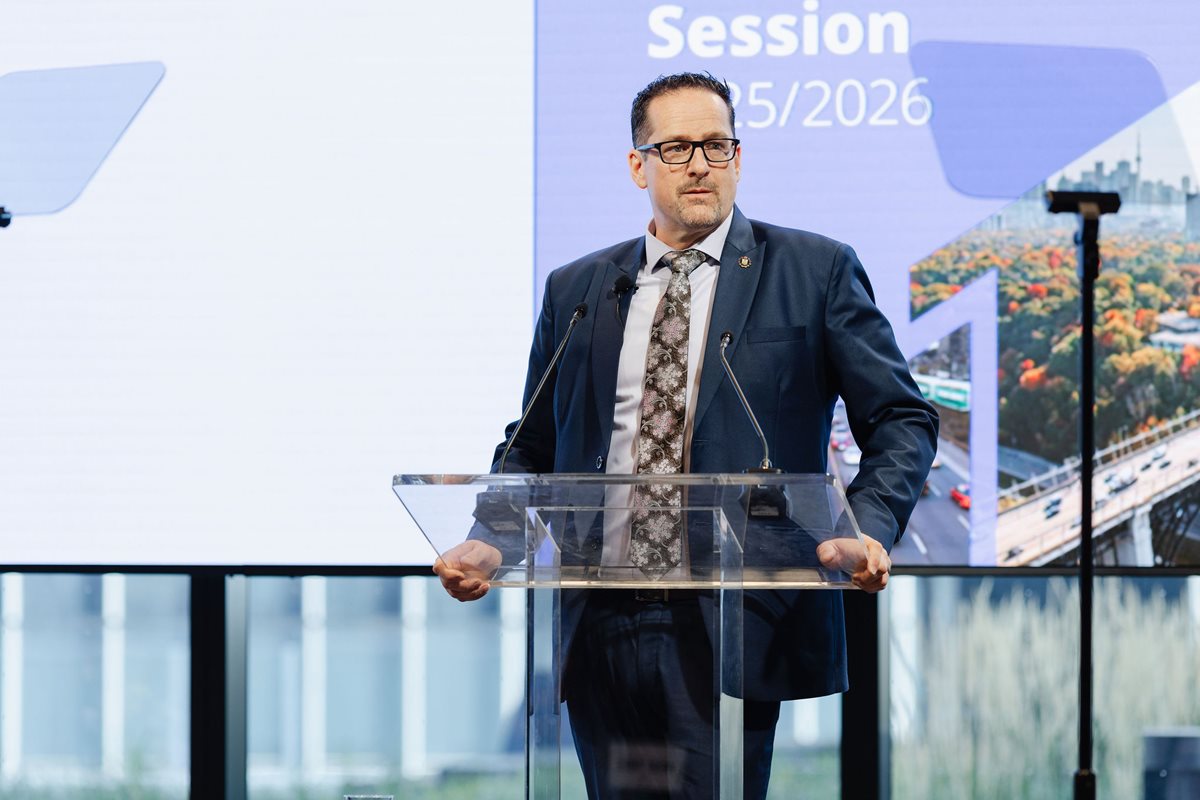
"Now is the time to fast track and break ground on nation-building infrastructure and resource projects across energy, critical minerals, agriculture, and more. These agreements set the stage for a new east–west economic and energy corridor, reduce internal trade barriers, and help unleash the economic might of our provinces. Together, Ontario and Alberta are pushing back against federal policies that have stalled major projects for far too long. It’s about making Canada an energy superpower."
— James Carpenter, Alberta's Senior Representative to Ottawa
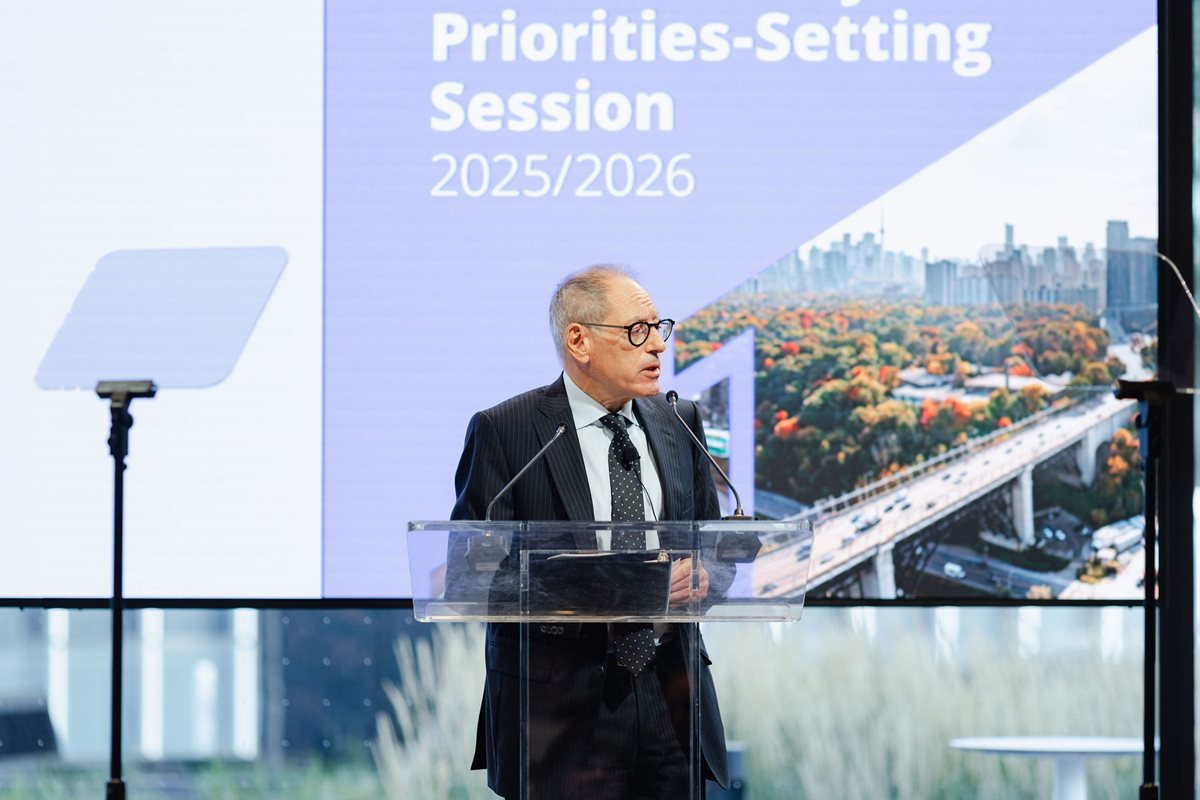
"Faced with today’s threat to our economic well-being from outside Canada’s borders, what more can Ontario do in cooperation with fellow provinces and territories to fuel growth within our borders? Canada’s economy would be much stronger if we could get it functioning in a more unified way. At least for the foreseeable future, Buy Canadian will be needed to fill the hole left by a harder-to-access U.S. market. This is a moment to rely on ourselves to act faster, and to act boldly."
— Giles Gherson, President & CEO, Toronto Region Board of Trade


